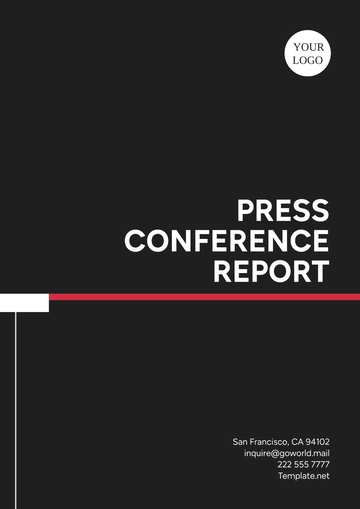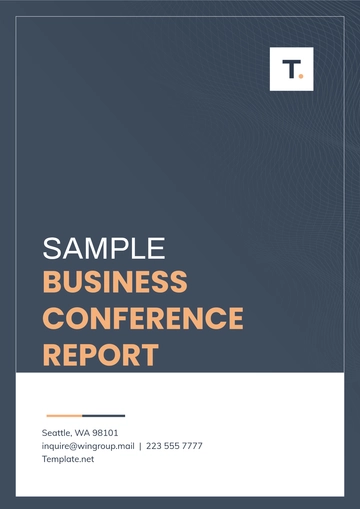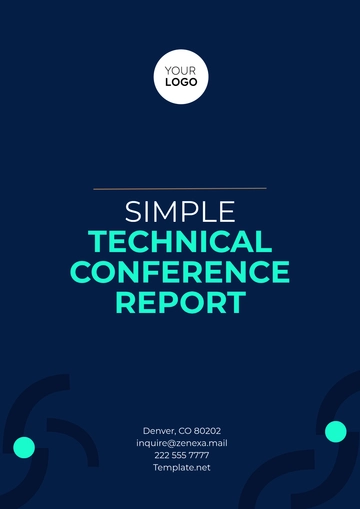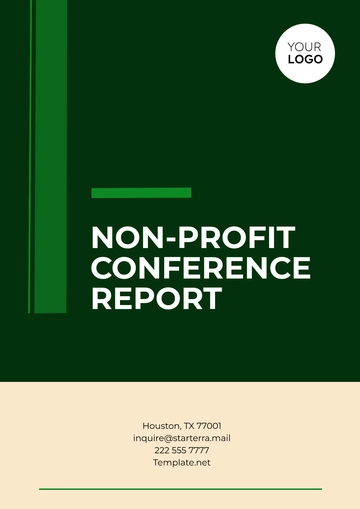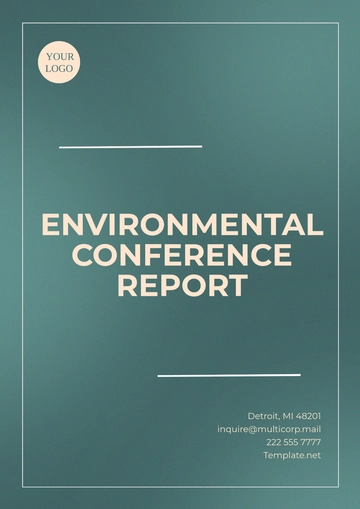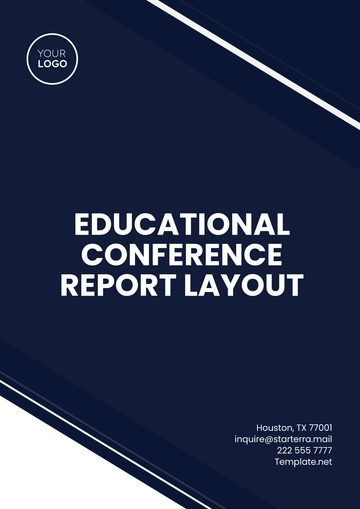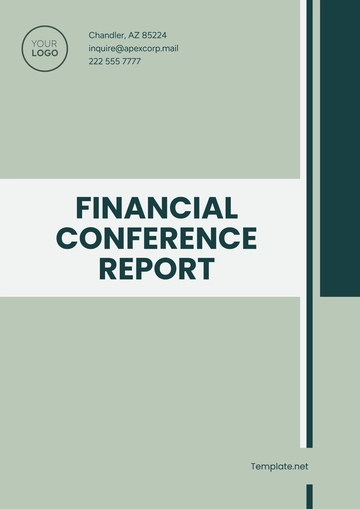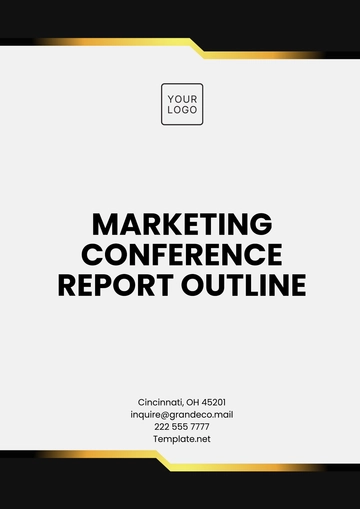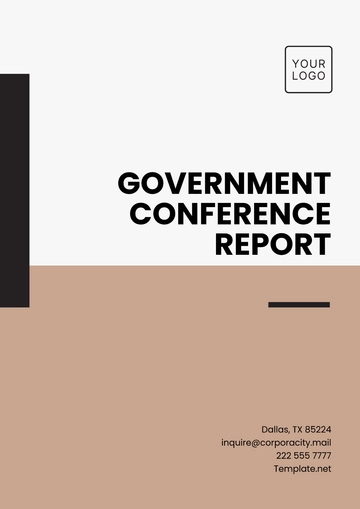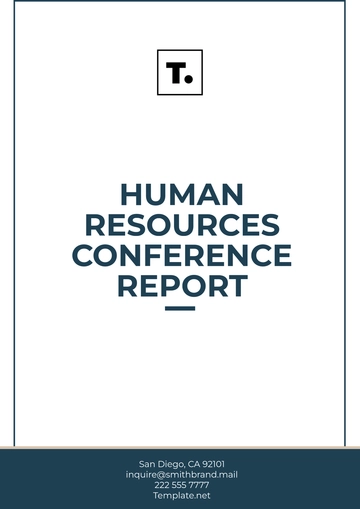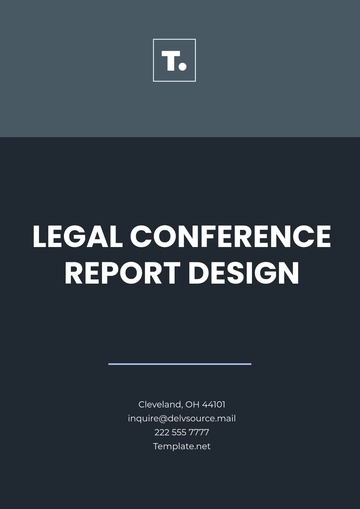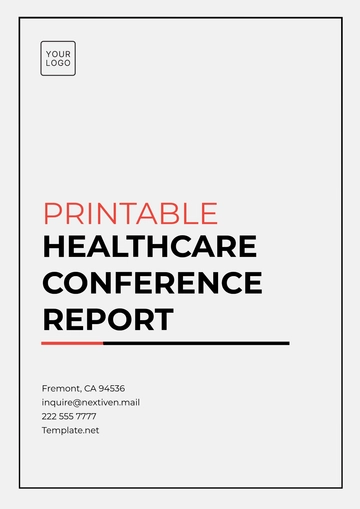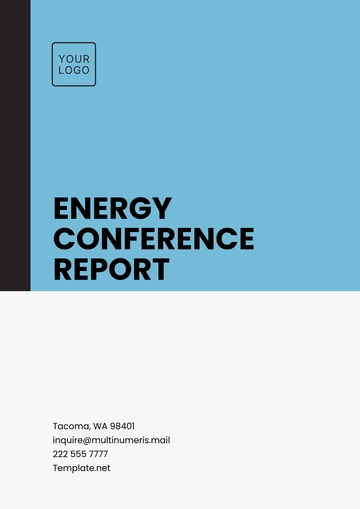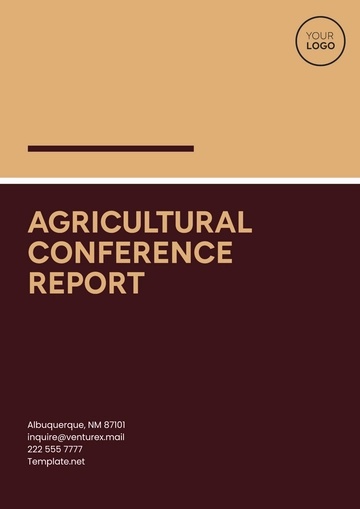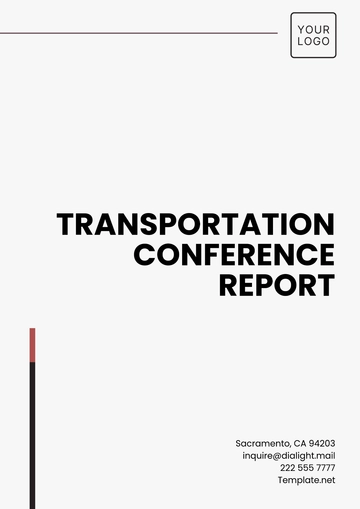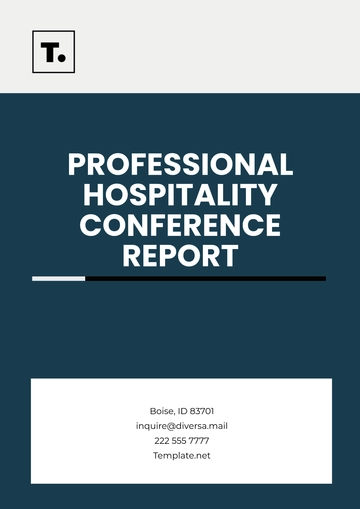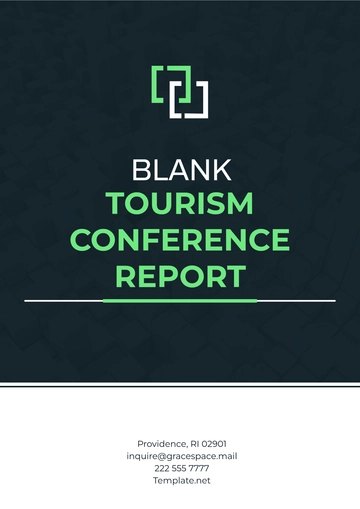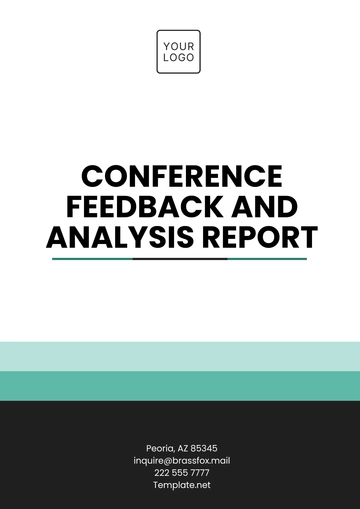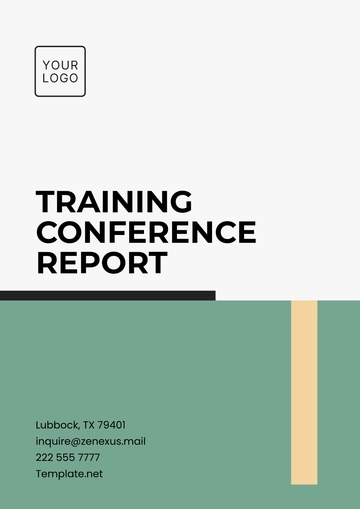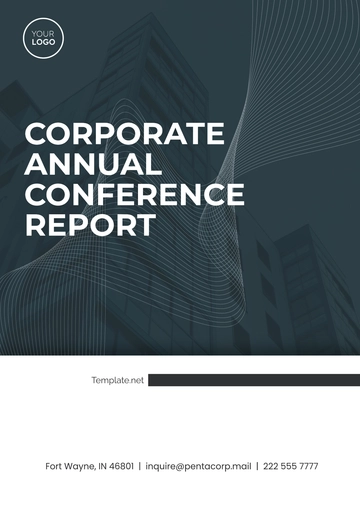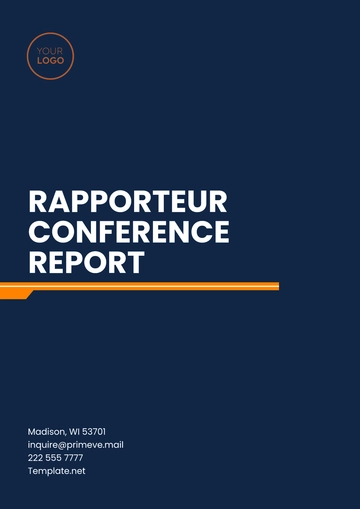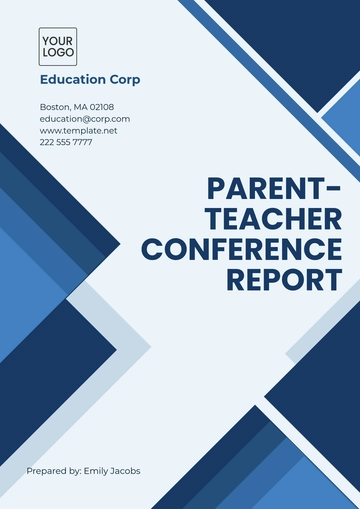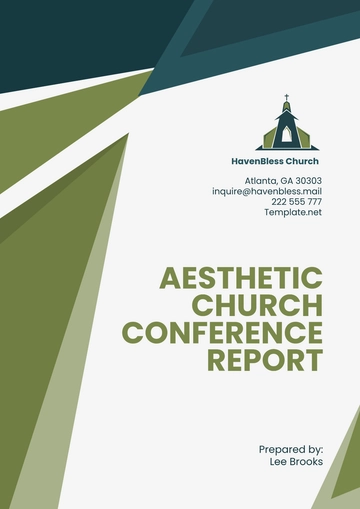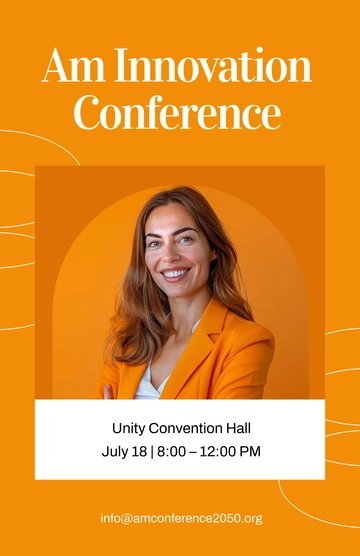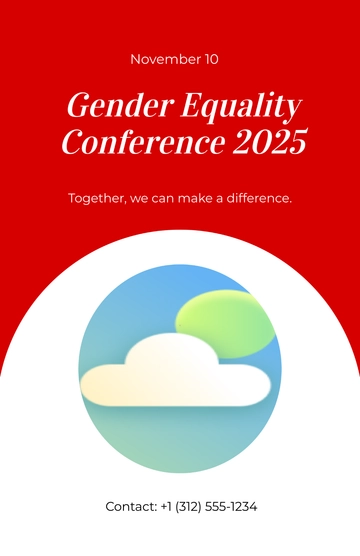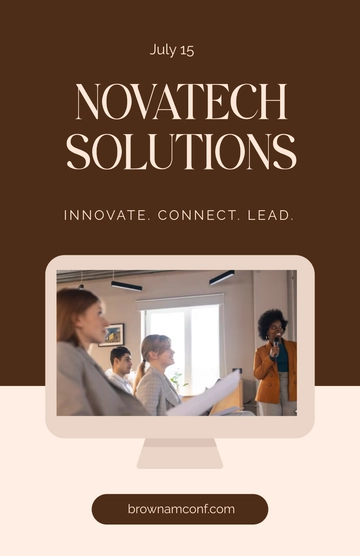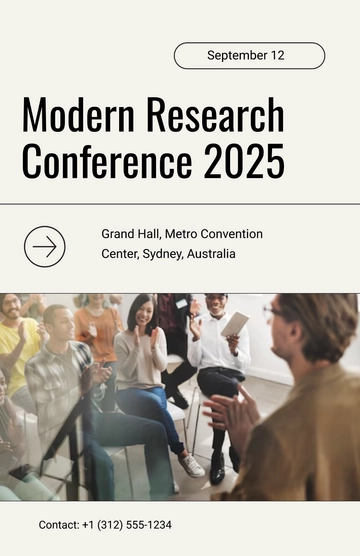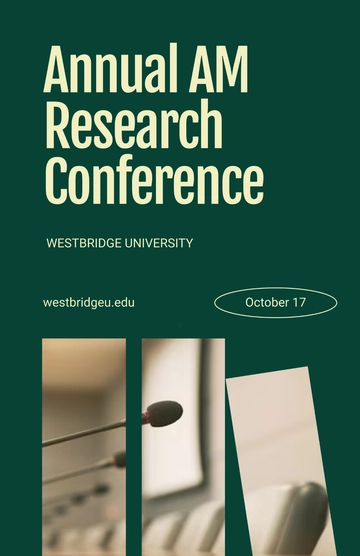Free Transportation Conference Report
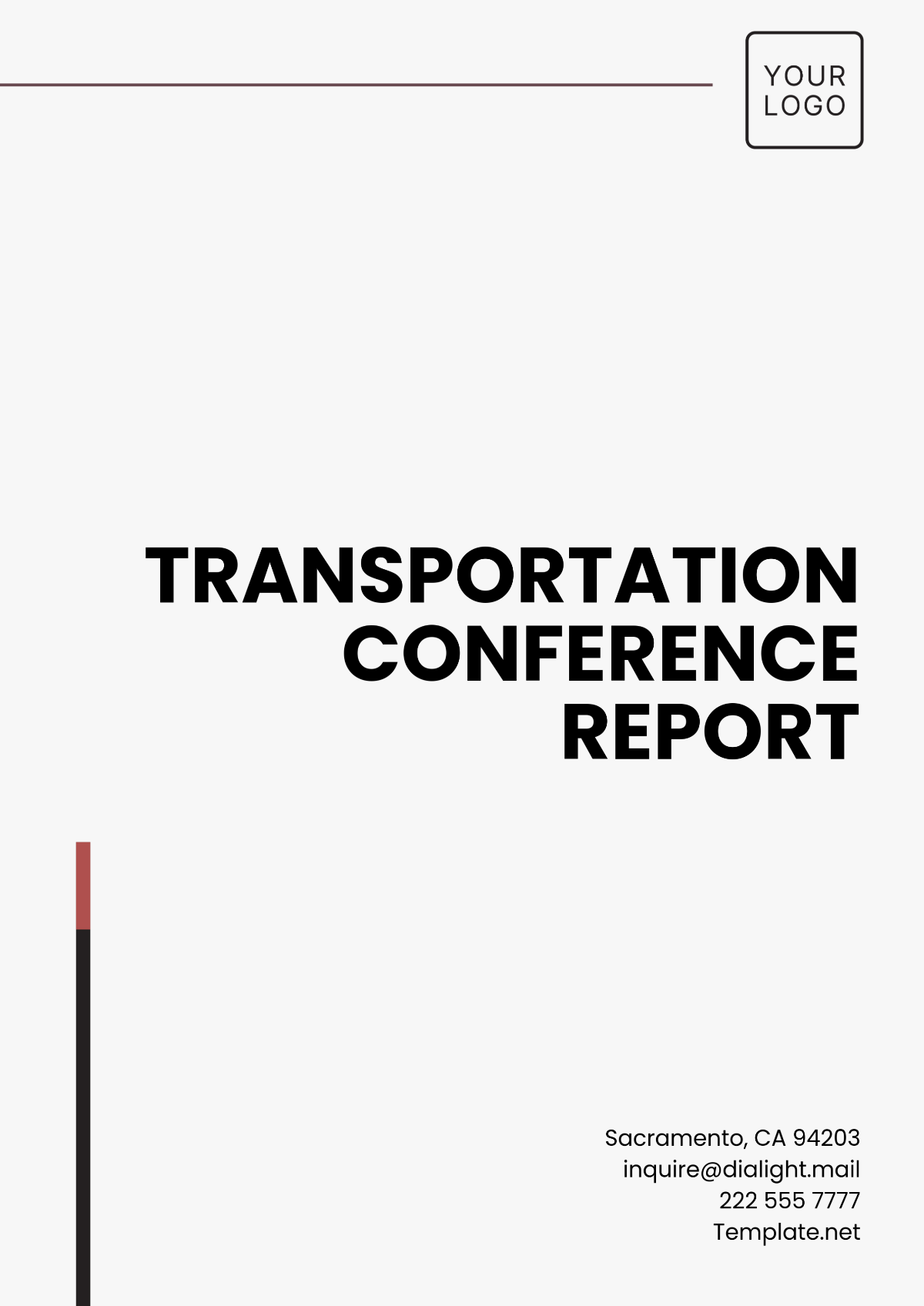
Prepared by:
[YOUR NAME]
[YOUR COMPANY NAME]
Introduction
This report provides an overview of the key discussions, presentations, and takeaways from the recent Transportation Conference. The event brought together professionals, researchers, and policymakers to discuss the latest trends, challenges, and technological advancements in the transportation sector. Topics included sustainable mobility, smart infrastructure, urban transportation, and the future of electric vehicles, among others. The conference also offered valuable networking opportunities and insights into ongoing research and innovations that are shaping the future of transportation.
Conference Overview
The Transportation Conference was held over two days, featuring multiple sessions, keynote speakers, and panel discussions. Participants included industry leaders, academic experts, and government representatives from around the world. The conference was structured into thematic sessions that covered a broad range of topics, including:
Sustainability in Transportation
The Role of Technology in Shaping Future Mobility
Urban Planning and Smart Infrastructure
Electric and Autonomous Vehicles
Policy and Regulation in the Transportation Sector
Keynote Presentations
1. Sustainable Transportation: The Path Forward
Dr. Emily Roberts, an expert in sustainable transportation, delivered an insightful keynote on the future of eco-friendly mobility. She emphasized the importance of integrating renewable energy sources with transportation networks to reduce carbon footprints and promote environmental sustainability. Dr. Roberts highlighted the role of public transport, cycling infrastructure, and shared mobility systems in achieving sustainable urban mobility.
2. Smart Infrastructure and the Rise of Autonomous Vehicles
A key presentation by Dr. Mark Thompson focused on the integration of smart infrastructure with autonomous vehicle technology. He outlined the potential of smart cities to support autonomous vehicles through advanced sensors, real-time data processing, and AI-powered traffic management systems. The presentation also discussed the challenges of adapting existing infrastructure to support these technologies.
Thematic Sessions
Sustainability in Transportation
This session explored innovative approaches to reducing transportation’s environmental impact. Speakers discussed advancements in electric vehicle (EV) technology, the potential of hydrogen fuel cells, and the importance of policy incentives to promote clean energy solutions. There was a strong emphasis on public-private partnerships to accelerate the transition to sustainable mobility.
The Role of Technology in Shaping Future Mobility
This session delved into the transformative power of emerging technologies such as AI, IoT, and blockchain in revolutionizing transportation systems. Speakers presented case studies on how these technologies are enhancing traffic management, improving safety, and optimizing routes for public transportation.
Urban Planning and Smart Infrastructure
Urban planning experts presented new frameworks for designing cities that promote efficient transportation. This session highlighted the need for integrated transport systems, better public transit options, and the development of pedestrian-friendly environments. Discussions also touched upon the role of data in planning transportation networks that are both efficient and adaptable.
Electric and Autonomous Vehicles
This session provided updates on the latest developments in electric and autonomous vehicles. Speakers highlighted advances in battery technology, the growth of EV infrastructure, and the challenges of integrating autonomous vehicles into mixed-traffic environments. There were also discussions on policy and regulatory measures to facilitate the widespread adoption of these vehicles.
Panel Discussions
Policy and Regulation in the Transportation Sector
A panel of experts debated the future of transportation policy. They discussed the need for regulations that balance innovation with safety, addressing concerns about the social and economic impacts of transportation technologies. The panel also discussed the role of governments in incentivizing the adoption of clean technologies and supporting infrastructure development.
The Future of Public Transit: Challenges and Opportunities
Panelists examined the evolving role of public transit in urban mobility. They explored how cities can make public transportation more attractive by leveraging new technologies, reducing fares, and ensuring better connectivity with other modes of transport. There was also a focus on equity and accessibility, ensuring that transportation solutions are inclusive for all citizens.
Networking Opportunities
The conference provided ample networking opportunities, with attendees participating in breakout sessions, roundtables, and informal gatherings. These interactions fostered collaboration across sectors, with participants exchanging ideas on how to address the pressing challenges in transportation today.
Key Takeaways
Sustainability remains a top priority, with a focus on integrating clean energy sources into transportation networks and reducing carbon emissions.
Emerging technologies such as AI, IoT, and blockchain are expected to play a pivotal role in shaping the future of transportation and improving the efficiency, safety, and management of transportation systems.
The integration of smart infrastructure is crucial for supporting autonomous vehicles and enhancing the efficiency of urban transportation networks.
Policy and regulatory frameworks need to evolve to keep pace with technological advancements and ensure that the benefits of new transportation technologies are shared broadly across society.
Conclusion
The Transportation Conference served as an important platform for discussing the future of transportation and the role of technology and policy in shaping that future. With a clear emphasis on sustainability, smart infrastructure, and emerging technologies, the event highlighted the need for continued innovation and collaboration among all stakeholders to build efficient, inclusive, and environmentally friendly transportation systems. The insights gained from this conference will be instrumental in guiding the development of transportation solutions that meet the needs of future generations.
- 100% Customizable, free editor
- Access 1 Million+ Templates, photo’s & graphics
- Download or share as a template
- Click and replace photos, graphics, text, backgrounds
- Resize, crop, AI write & more
- Access advanced editor
The Transportation Conference Report Template from Template.net is fully editable and customizable to meet your specific needs. Easily modify the content, layout, and design using our AI Editor Tool for a professional and tailored report. Ideal for documenting transportation-related events, this template ensures a clear, organized, and polished presentation of key insights.
You may also like
- Sales Report
- Daily Report
- Project Report
- Business Report
- Weekly Report
- Incident Report
- Annual Report
- Report Layout
- Report Design
- Progress Report
- Marketing Report
- Company Report
- Monthly Report
- Audit Report
- Status Report
- School Report
- Reports Hr
- Management Report
- Project Status Report
- Handover Report
- Health And Safety Report
- Restaurant Report
- Construction Report
- Research Report
- Evaluation Report
- Investigation Report
- Employee Report
- Advertising Report
- Weekly Status Report
- Project Management Report
- Finance Report
- Service Report
- Technical Report
- Meeting Report
- Quarterly Report
- Inspection Report
- Medical Report
- Test Report
- Summary Report
- Inventory Report
- Valuation Report
- Operations Report
- Payroll Report
- Training Report
- Job Report
- Case Report
- Performance Report
- Board Report
- Internal Audit Report
- Student Report
- Monthly Management Report
- Small Business Report
- Accident Report
- Call Center Report
- Activity Report
- IT and Software Report
- Internship Report
- Visit Report
- Product Report
- Book Report
- Property Report
- Recruitment Report
- University Report
- Event Report
- SEO Report
- Conference Report
- Narrative Report
- Nursing Home Report
- Preschool Report
- Call Report
- Customer Report
- Employee Incident Report
- Accomplishment Report
- Social Media Report
- Work From Home Report
- Security Report
- Damage Report
- Quality Report
- Internal Report
- Nurse Report
- Real Estate Report
- Hotel Report
- Equipment Report
- Credit Report
- Field Report
- Non Profit Report
- Maintenance Report
- News Report
- Survey Report
- Executive Report
- Law Firm Report
- Advertising Agency Report
- Interior Design Report
- Travel Agency Report
- Stock Report
- Salon Report
- Bug Report
- Workplace Report
- Action Report
- Investor Report
- Cleaning Services Report
- Consulting Report
- Freelancer Report
- Site Visit Report
- Trip Report
- Classroom Observation Report
- Vehicle Report
- Final Report
- Software Report
